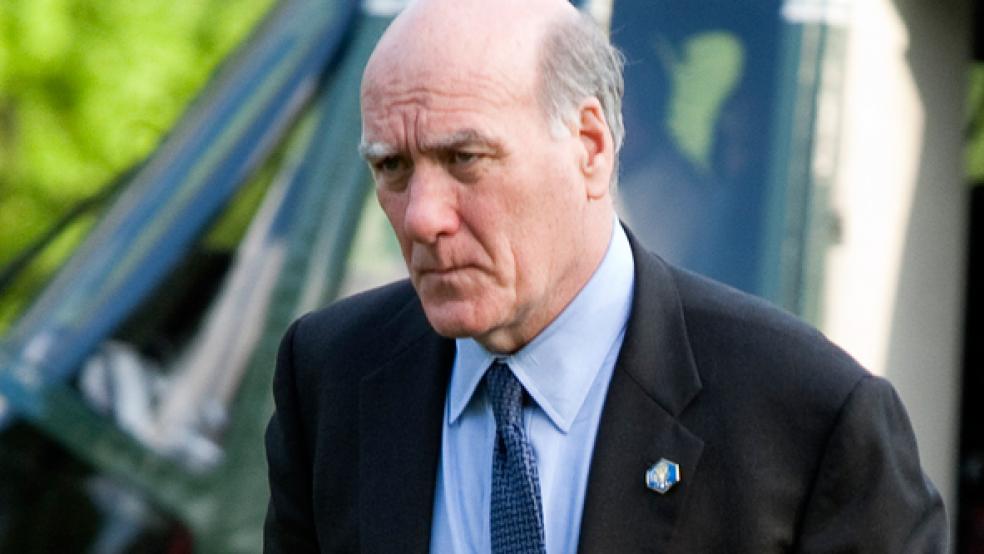Key Obama Administration officials sought to reassure the public about the economy on Wednesday, but it wasn’t an easy task after Federal Reserve Board Chairman Ben Bernanke warned yesterday that “the recovery is close to faltering.”
White House Chief of Staff William Daley told a Washington gathering, “We’re very concerned about the possibility of a double dip” in the economy, but “the expectation as of right now is that the country will avoid another downturn."
Treasury Secretary Timothy Geithner said it’s hard to dispute that “growth is slower, weaker here and around the world” than the administration and experts had previously projected. But that is hardly surprising in retrospect, he added, after an oil shock, the earthquake in Japan, the severe European debt crisis and a bitter partisan battle between the administration and the Republicans over raising the debt ceiling. He said, “That caused a lot of damage to confidence and made people wonder whether our political system is up to dealing with the challenges we have.”
“The economy is still healing from the worst financial crisis since the Great Depression," Geithner added. "The question is what should we do, what can we do?”
The White House chief of staff and treasury secretary both emphasized the importance of European leaders moving decisively to come to terms with the debt and banking crisis in Greece and other countries that has roiled the international markets and threatened the long-term stability of the U.S. and European economies.
“I would use the words of European leaders -- they recognize they have been behind the curve of this, that they are moving too slowly, they are moving not as fast as markets move in today’s environment and they have to do more to build more confidence that they are going to act to hold this thing together,” Geithner said.
Daley, Geithner and White House Senior Adviser Valerie Jarrett defended President Obama’s much criticized stewardship of the economy and put in a big plug for his $447 billion jobs package during appearances before a Washington Ideas Forum sponsored by the Atlantic Publishing Company and the Aspen Institute at the Newseum.
Obama has been barnstorming across the country demanding congressional action on his proposals of tax credits and tax cuts, an infrastructure bank, aid to states and other measures to get the economy moving again and reduce the 9.1 percent unemployment rate.
“If Congress were to act on that package, which of course we hope they will, it would make a major difference to a recovery . . . and if we tie that to the types of long term fiscal reforms . . . we’d also just make a big contribution to greater confidence and demonstrate not just to Americans but people around the world that this political system is up to the challenges we face,” Geithner said. “If Congress does not act, then growth will be weaker here and with growth weaker we will be more vulnerable to other things happening that are beyond our control.”
The questioning of the administration officials was heavily influenced by Bernanke’s testimony yesterday on Capitol Hill that the economy could fall into a new recession unless the government took further action. A special bipartisan congressional “Super Committee" is attempting to negotiate a plan for at least $1.2 trillion long-term deficit reduction to avert automatic across-the-board spending cuts in defense and domestic problems or “sequestration.” Also, Senate Majority Leader Harry Reid, D-Nev., has promised a vote on Obama’s jobs proposal at some point, while Republican House Majority Leader Eric Cantor of Virginia has declared the plan “dead on arrival,” largely because it would be financed by raising taxes on wealthier individuals and families.
With the economy stalled and more than 14 million people without jobs, Obama’s approval rating is mired near a career low, with only 47 percent saying they view the president favorable, according to a recent Washington Post-ABC News poll. Obama said this week that he viewed himself as the “underdog” in the 2012 presidential campaign.
In discussing the work of the Super Committee, Daley said warned that the president would not sign off on any agreement that wasn’t “balanced,” meaning a combination of spending cuts, entitlement reforms and tax increases on the wealthy to help reduce the long-term debt. Right now, there is virtually no indication that the Republican members of the panel would support a tax increase as part of the mix.
“I know how hard it is to come up with a balanced package,” Daley said. “If it doesn’t come up with a balanced package, we will end up with a sequester in 2013,” that would force deep cuts in the Pentagon budget as well as domestic programs.
The administration has called for a “Grand Bargain” of spending cuts and tax increases totaling as much as $4 trillion over the coming decade, but from the looks of things, the Super Committee will be lucky to settle on $1.2 trillion of deficit reduction – the bare minimum. “If they can’t do something bold, that would be another sort of damnation of the system and that would be unfortunate,” he said.



